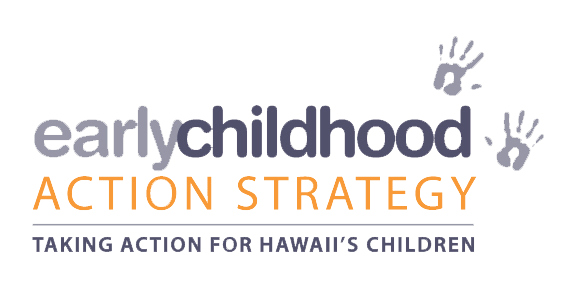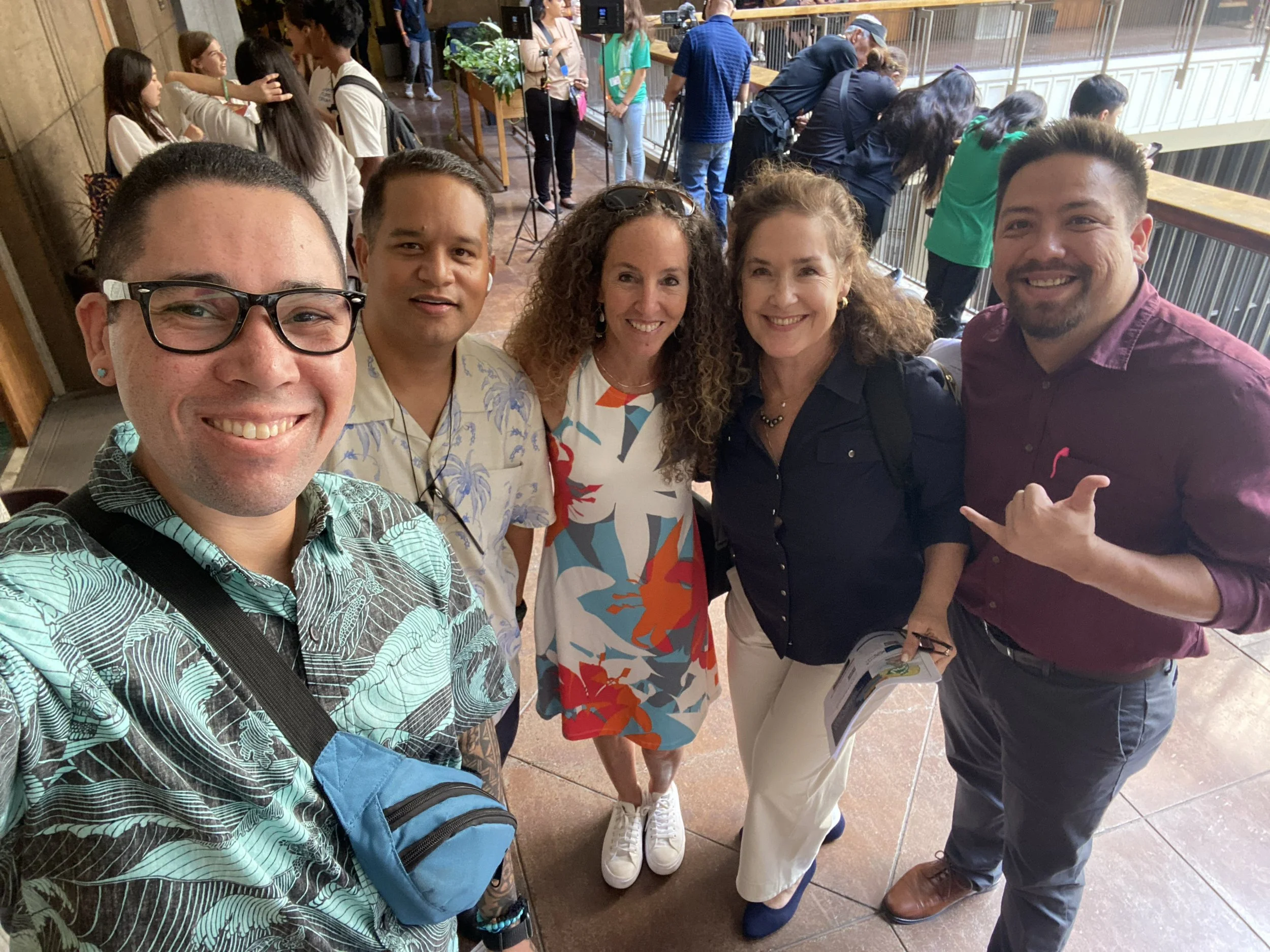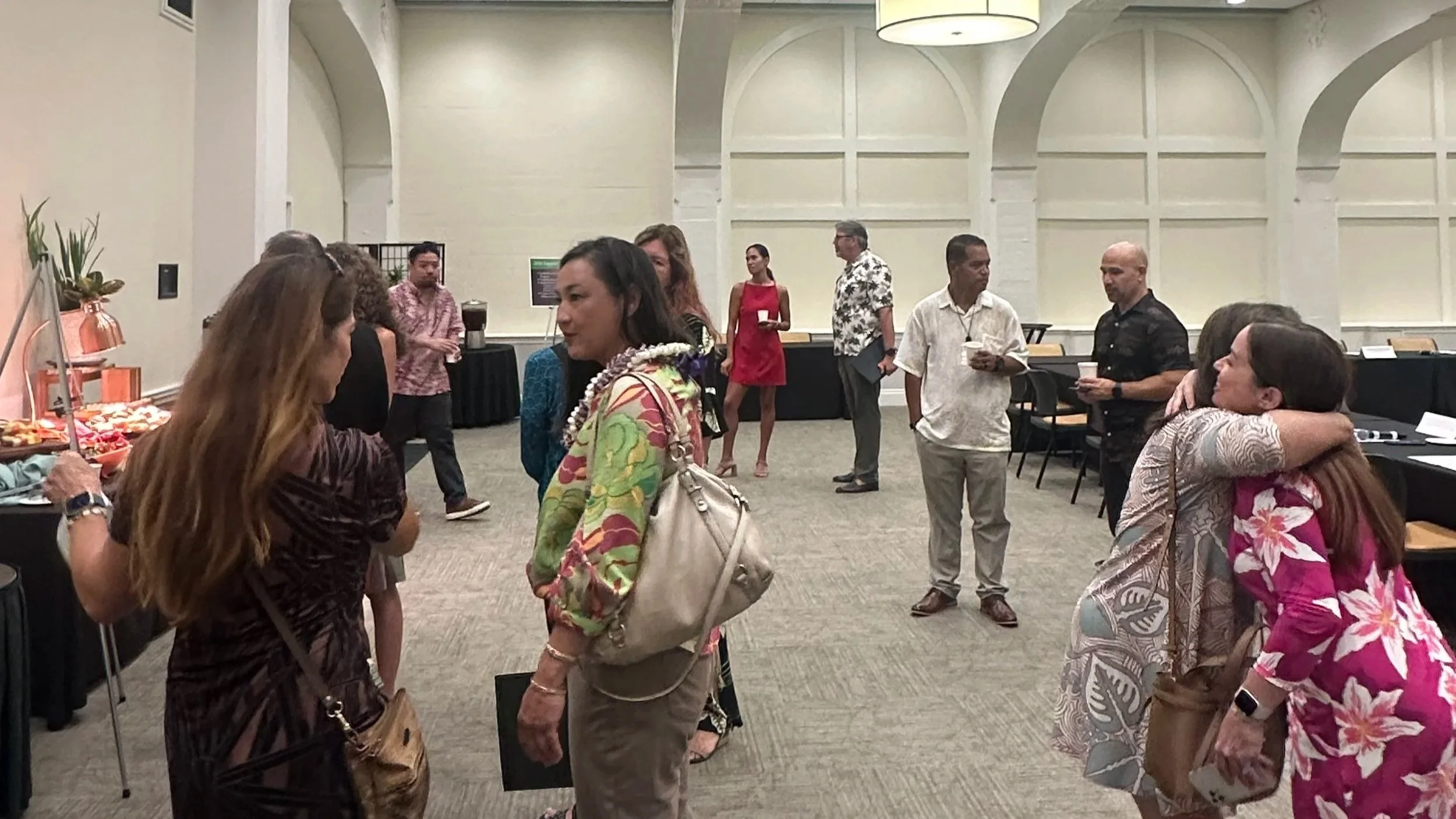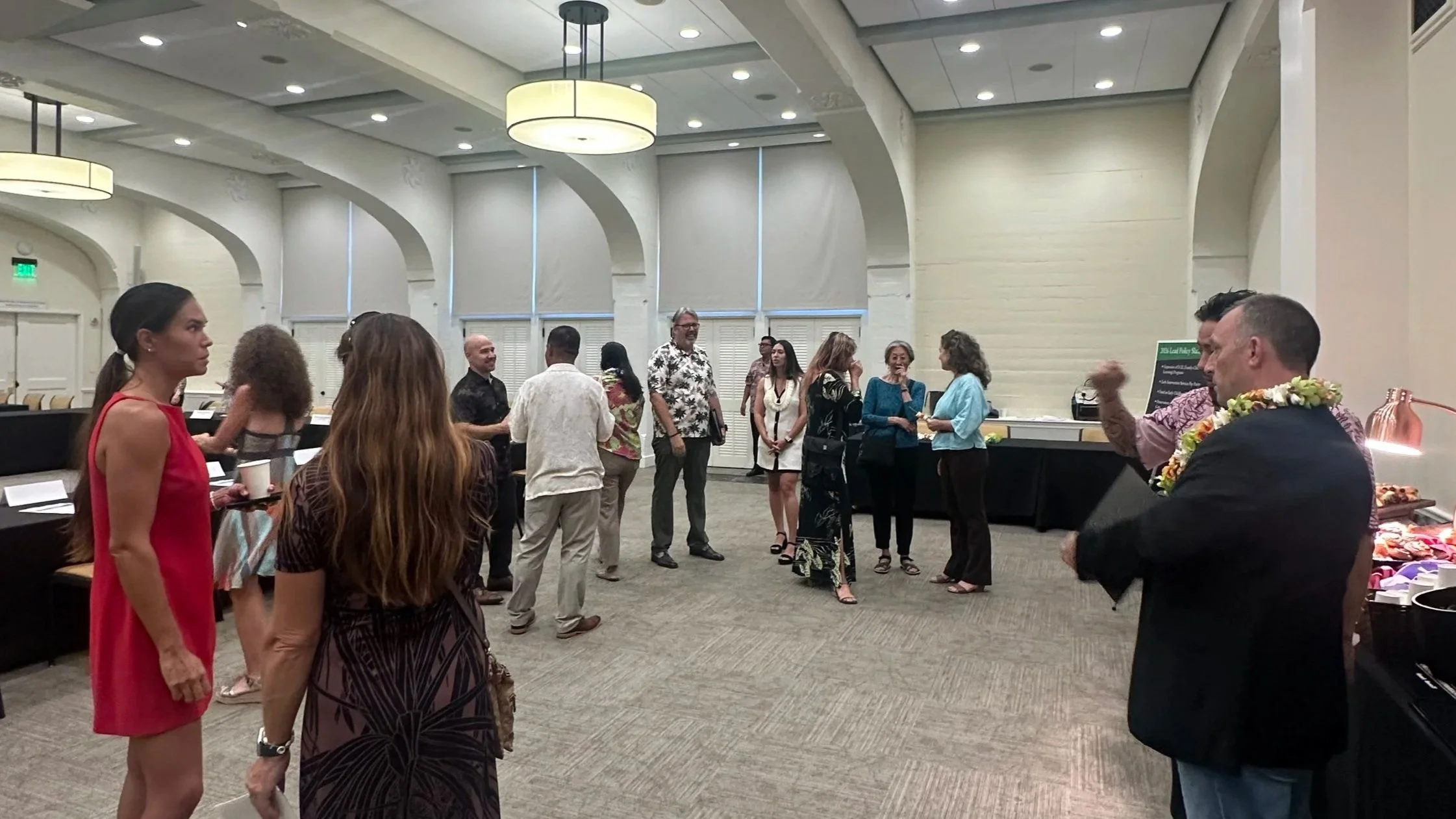Recap of the Hawaiʻi State 2025 Legislative Session
Lasting improvements for our youngest keiki need to be supported by effective policy on the state and county levels. Affecting policy plays a significant role in our pursuit of systems change that benefits the lives of young keiki and their ‘ohana.
The ECAS Policy Team and the Commit to Keiki Steering Committee are composed of advocates and stakeholders from the government, private and nonprofit sectors. Collectively, they built a diverse agenda for the 2025 Legislative Session that featured measures addressing various issues relating to early childhood development. This agenda guided our advocacy efforts throughout the Session. The ECAS Policy Team and the Commit to Keiki Steering Committee met regularly throughout the State Legislative Session—where many of our policy priorities are considered, honed, voted upon, and—if passed—implemented. Many individuals and organizations championed measures, briefed, and educated legislators, hustled and marshaled public support, to advance these bills. Additionally, ECAS backbone staff tracked bills and provided testimony in support of measures aligned with team and workgroup priorities.
The end of Session is the time to celebrate wins, discuss challenges and identify opportunities.
Legislative Wins for Keiki
House Bill 237 passed - Appropriates $860,000 to the State Department of Health (DOH) Family Health Services Division to establish and oversee peer-to-peer support programs including the integration of Infant and Early Childhood Mental Health into peer-support programs.
House Bill 692 passed - Expands eligibility to the Preschool Open Doors (POD) program to children as young as the age of two. It also repeals the requirement that POD providers be accredited.
House Bill 1194 passed - Defines the practice of midwifery, makes permanent the laws surrounding the practice, and mandates both licensure and accreditation.
House Resolution 133 was adopted - Tasks the State Office of Wellness & Resilience (OWR) to develop a report to address the developmental needs of children born during the pandemic.
House Resolution 139 was adopted - Tasks the Department of Health (DOH) to develop a plan to pursue funding for and participate in the Centers for Disease Control and Prevention’s public surveillance of autism prevalence
Noteworthy, is the House Bill 549 to establish an Early Learning Apprenticeship Grant Program. This new proposal made it all the way to the conference committee where legislators ultimately deferring the measure, citing uncertainty surrounding the federal government and funding. Please read our full ECAS Session Recap which summarizes the final status on all measures that were included in this year’s Policy Agenda.
Now is also a good time to look at our policy efforts across the teams and review and refine the process to ensure that we have an effective and impactful policy process. With leadership from our policy lead Jared Ellis, ECAS teams can begin to grow a more tailored policy agenda that supports their work. Going forward we are working to identify opportunities and areas where policy efforts can make an impact.
Additionally, ECAS and Commit To Keiki will expand activities to amplify early childhood development in the media and with elected officials to strengthen public and political consensus and to establish our organizations as resources on all things early childhood and as a known convener and mobilizer.
There is lots to do in order to gear up for the 2026 legislative session and to prepare for the Governorʻs race and Maui County and Kaua`i County mayoral races.
“We are witnessing a lot of energy and commitment to creating a better future for our youngest keiki and families in Hawaiʻi, and everybody’s efforts in the legislative arena are hugely reaffirming.” Jared Ellis, ECAS Policy Lead








